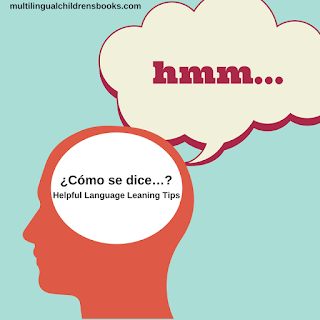Learning a new language can be frustrating if you do not understand some of the "rules." So I am here to help! Read below for some "helpful hints" as you begin your journey to become multilingual!
If you're learning a new language, you might run into a roadblock when it comes to practicing your newfound skills out loud. Maybe you feel like an expert on Duolingo, but now it's time to order at your favorite Mexican restaurant... and you freeze. Don't worry. You're not alone.
Read more...
 |
Read More...
Many people have told me, "I want to learn a new language, but I don't have the time." I completely understand. If you do a quick internet search about the time it takes to learn a language, you might get discouraged before you even begin! According to Language Testing International (2016), it can take up to 720 hours to become fluent in Spanish or French. Research also states that getting to this advanced level of proficiency in a new language requires about 4 hours of practice each day for 6 months (LTI, 2016). Wow. With stats like that, who does have the time?!
Read More...
Ohhh how I LOVE cognates! They are a multilingual learner’s best friend. A cognate is a word that holds the same meaning and has an identical, or almost identical, spelling in more than one language. I like to think of them as “freebies” when learning a new language; you most likely already know this word in English, so committing it to memory in Spanish or French will be so much easier.
Read More...
Let's start with the basics. If you are just beginning to dip your feet into learning how to read in a new language, then you do not want to get caught up in the differences in punctuation. Never fear! I will explain all of these mystery symbols below.
Read more...
Read more...



